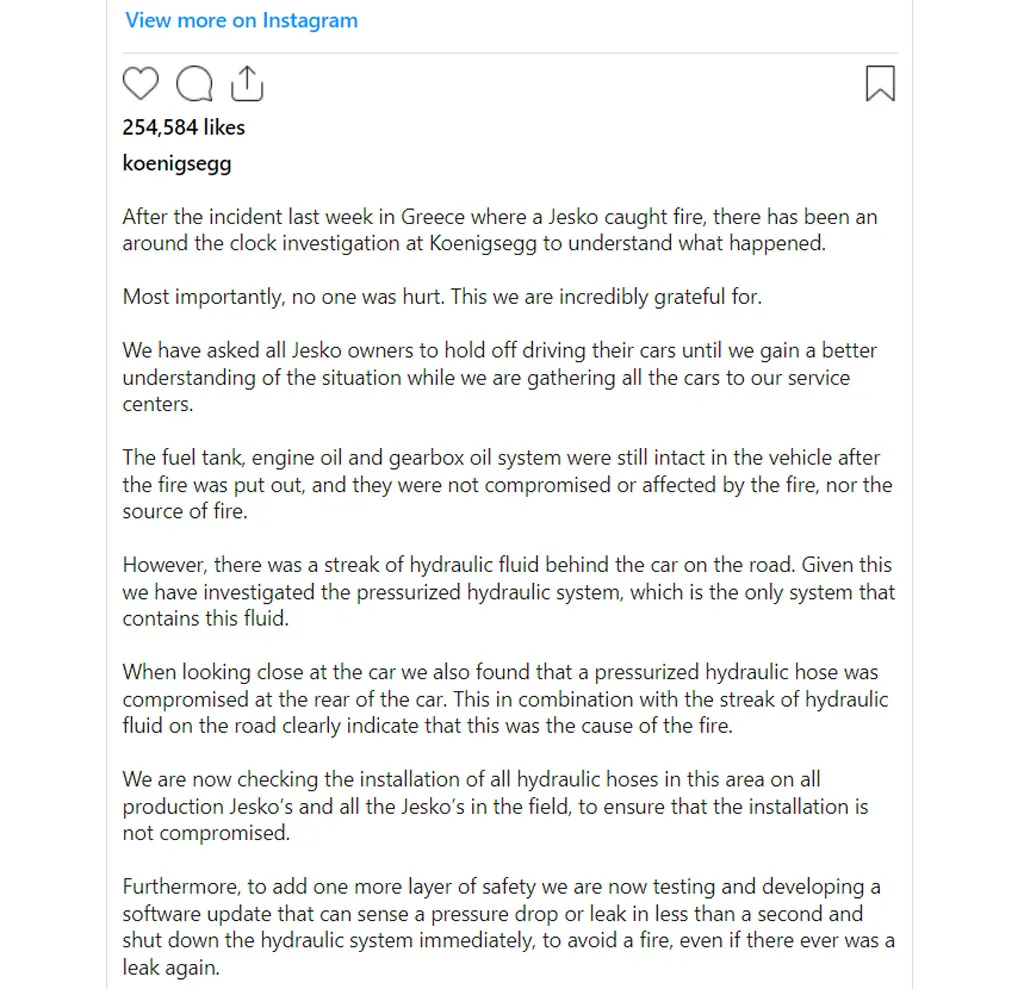Following a thorough investigation, Koenigsegg has determined the cause of a fire that resulted in one of the company’s $3 million Jesko hypercars burning to the ground in Greece in mid-June.
In an Instagram post made on June 20, Koenigsegg CEO and founder Christian von Koenigsegg said a leak of hydraulic fluid on the road surface near the wreckage of the 1,600-hp car, plus a compromised pressurized hydraulic hose on the car itself is the most likely cause of the fire.
He said elements like the fuel tank, and oil systems for the engine and transmission were intact after the fire was put out and not compromised in anyway, thus unlikely to be the source of the fire.
He added that no one was injured by the incident but as a precaution the company requested that owners hold off from driving their cars until they can be gathered to a service center for an inspection of any pressurized hydraulic hoses.

Instagram post by Koenigsegg made on June 20, 2024
For added safety, Koenigsegg will also develop a software system that can sense a pressure drop or leak in the hydraulic system and cause it to shut down, should such an issue arise in the future, von Koenigsegg said.
Customer deliveries of the Jesko started in late 2022 and just 125 examples are destined to be built. For the customer whose car was destroyed by fire, Koenigsegg has promised to build a new one.
The Jesko comes in Attack and Absolut versions, and the version that caught fire was a Jesko Attack. The Jesko Attack features a high-downforce setup designed for achieving top track times, while the Jesko Absolut features a low-downforce setup designed for top speed runs. Both versions sport a twin-turbocharged 5.0-liter V-8 that with E85 makes the full 1,600 hp. Filling the car up with regular gasoline drops the power rating to 1,280 hp.
The automaker this week also announced the Jesko Absolut broke the record for the 0-400-0 kph (0-249-0 mph) run, by requiring just 27.8 seconds to achieve the feat. The previous record of 28.8 seconds was set by another Koenigsegg, the Regera, in 2023.
